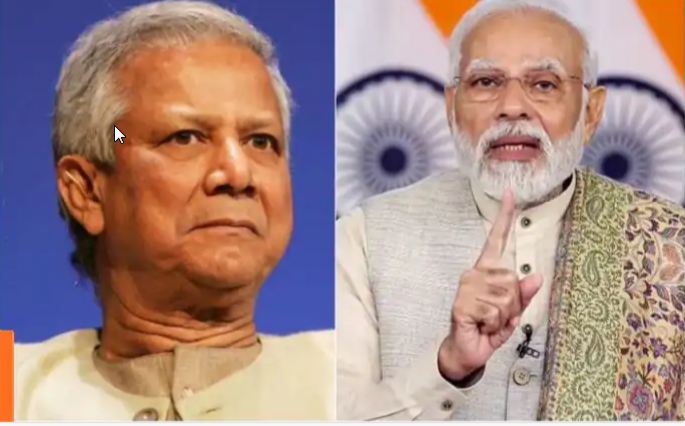India isolated in S. Asia after Bangladesh’s new foreign policy
 Islamabad: The new foreign policy of Bangladesh’s interim government, formed after the 15-year authoritarian rule of Sheikh Hasina Wajed, has isolated India in South Asia and further complicated India’s position in the region.
Islamabad: The new foreign policy of Bangladesh’s interim government, formed after the 15-year authoritarian rule of Sheikh Hasina Wajed, has isolated India in South Asia and further complicated India’s position in the region.
According to Kashmir Media Service, Sheikh Hasina Wajed after being ousted from power following student protests, fled to India, leaving the interim government to handle Bangladesh’s affairs.
The new government has introduced significant policy changes, with recent alterations to Bangladesh’s foreign policy proving concerning for India. Since these changes, India has been resorting to various covert tactics to undermine Bangladesh’s sovereignty.
The diplomatic relations between India and Bangladesh have been strained following attacks on the Bangladeshi consulate in India. The Indian government’s media outlets are engaged in a destabilization campaign against Bangladesh through misleading information. On the other hand, the arrival of a Pakistani cargo ship in Chittagong and the easing of customs inspections for Pakistani imports are signs of growing ties between Bangladesh and Pakistan, which are worrying for India.
The interim government of Bangladesh has also ordered the cancellation of a broad telecom agreement with India. Tensions are also rising between the two nations over issues such as illegal immigration, the rights of religious minorities, and water-sharing agreements.
The growing anti-India sentiment among the people of Bangladesh has further worsened the situation. India is attempting to regain influence over Bangladesh through protests and media campaigns, but the people of Bangladesh, having ousted Sheikh Hasina who had stifled their freedoms under India’s influence, are now delivering a strong message to India.








